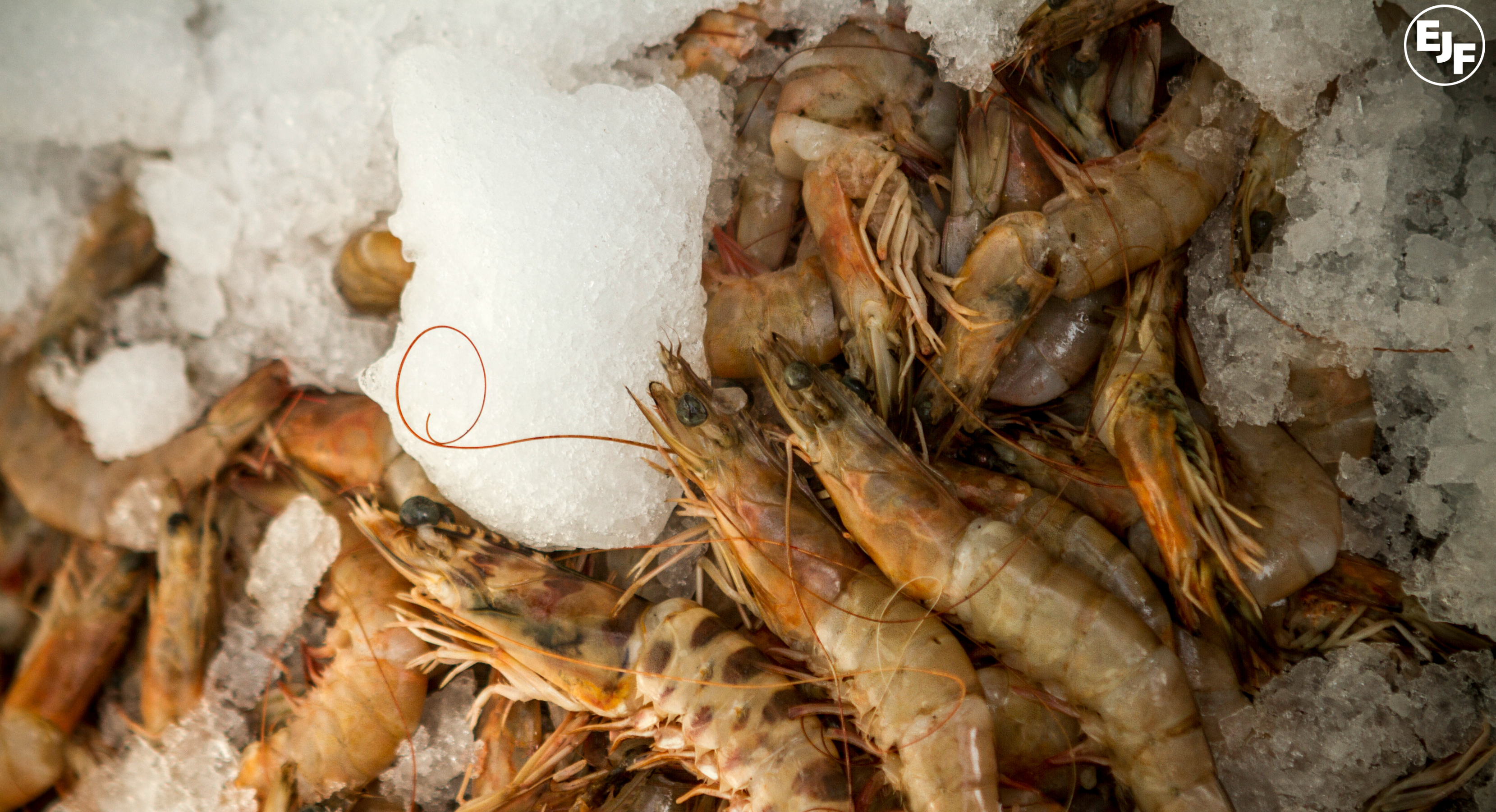
In the mood for seafood: what is better than a prawn cocktail?
This is not about the high calorie mayonnaise. It’s about the prawns, and more specifically their cost. As a general rule, ethically and sustainably produced seafood comes at a slightly higher price (though probably not as much as you might think). For a small difference in cost, there is likely a huge difference in the way they are produced. If your prawns were farmed in Thailand, one of the world’s largest producers, there is a chance that somewhere along the supply chain, vulnerable people have been exploited. From human trafficking and slavery to brutal violence and murder, the abuses we are seeing in the Thai fishing industry are as serious as they come.
In 2013, the Office for National Statistics estimated that the average UK household spends £83.60 each week on food and drink. Two years later, UK incomes were at their highest, on average, since 2009 and falling fuel prices and cheaper utility bills gave families an extra £15 a week compared to 2014. In the U.S., the Bureau of Labour Statistics recently noted a 4.7-percent increase in average expenditure per consumer between 2013 and 2014. It’s fair to say that no one would knowingly buy food that has been produced by slaves. So, if this is not a question of price, are consumers simply unaware of where their food is coming from?
Thailand’s domestic fisheries are at risk of total collapse if current management practice fails to urgently address Illegal, Unreported and Unregulated (IUU) fishing in the region. As a result of critically exhausted fish stocks, vessels are forced to travel further afield and stay at sea longer for ever-diminishing catches, often crossing into Malaysian, Indonesian and Cambodian waters to fish illegally. In just 50 years, Thai fishing trawlers have seen their catch plummet by 86%. The resulting increase in costs has been one of the main drivers behind the disturbing and violent trade in the slave labour used to crew much of the Thai fleet. In turn, the seafood supply chains of major retailers in the US or UK run the risk of selling produce tainted by trafficked, forced and bonded labour.
For the past three years, the Environmental Justice Foundation (EJF) has been conducting in-depth field investigations into slavery and illegal fishing in Thailand, producing films and detailed reports and exposing the systematic use of trafficked, forced and bonded migrant labour in the country’s fisheries sector.
Since EJF’s first investigation, the Royal Thai Government’s (RTG) has implemented some changes. A few arrests have been made and some boats recalled. However, the Thai enforcement strategy on illegal ‘pirate’ fishing remains unclear at this stage. How is the government planning on building a culture of compliance? How will they ensure that illegal actors in the industry face prosecutions and convictions with appropriate penalties? These questions remain unanswered, while reforms need to be fully and urgently implemented to eradicate illegal fishing in the Thai fleet.
In September this year, EJF handed over a package of evidence to Thai authorities, which included allegations of serious abuse and ‘live’ murder cases, before advising Thai Prime Minister Prayut Chan-o-cha on how to address the human rights abuses in the industry. One month later, the Thai Department of Special Investigation and the Myanmar Association in Thailand (MAT) launched an operation to rescue a dozen Burmese migrant workers trapped on fishing boats off the coast of Trang province in Southern Thailand. Soon after, the Government coordinated a second operation that concluded with the arrest of a man described as a key link in the human trafficking network that fuels the fishing industry in the area. While it is a (very small) step in the right direction, what EJF observed in Kantang with Boonlarp Fishing Company is just the tip of the iceberg. Is the RTG able to guarantee that they will continue working to solve such a deep-rooted and systemic problem in the long term? Will they deliver a coherent, intelligence-led and forensic approach to these human rights abuses in order to successfully secure prosecution and conviction of the Thai nationals responsible for this exploitation?
Both the U.S. and the EU are now noting Thailand’s inability to significantly address the use of trafficked, forced and bonded labour in its fishing sector. The US State Department downgraded Thailand to the lowest tier of its Trafficking in Persons (TIP) report, where it has remained for two consecutive years. More recently, several global companies face class action lawsuits from consumers in the US over allegations that their products are tainted by modern slavery aboard Thai fishing vessels.
One of the men we interviewed over the summer wanted to pass on this message:
‘What I want to say is that if you buy and eat Thai seafood, know that the fish comes at the expense of our exploitation’.
If it’s any consolation, please be assured that this is not the sole responsibility of the consumer. Big brands have failed to clean up their supply chains and products tainted with severe human rights violations continue to stock the shelves of supermarkets in the EU and US. Because of this, consumers are unwittingly lining the pockets of powerful business owners and corrupt officials who exploit vulnerable workers and devastate the oceans.
Small purchasing decisions can make big differences. So, when choosing your Christmas menu this year, don’t forget that you can help these men by asking your retailer or waiter if their seafood can be shown to be 100% slave-free. The more people ask this question the better.